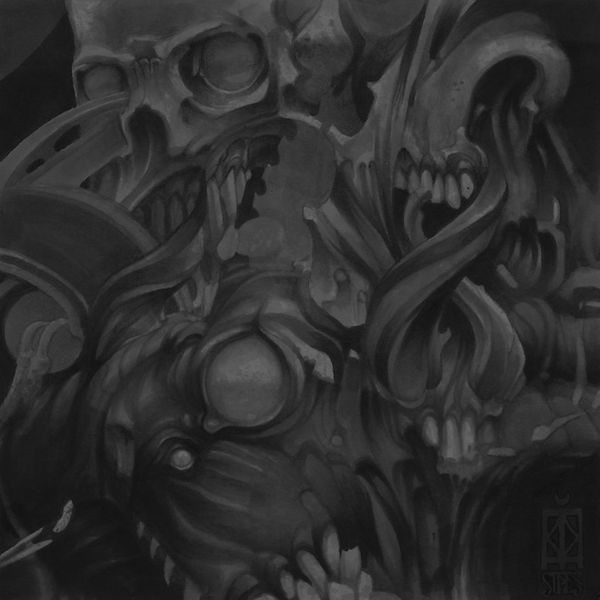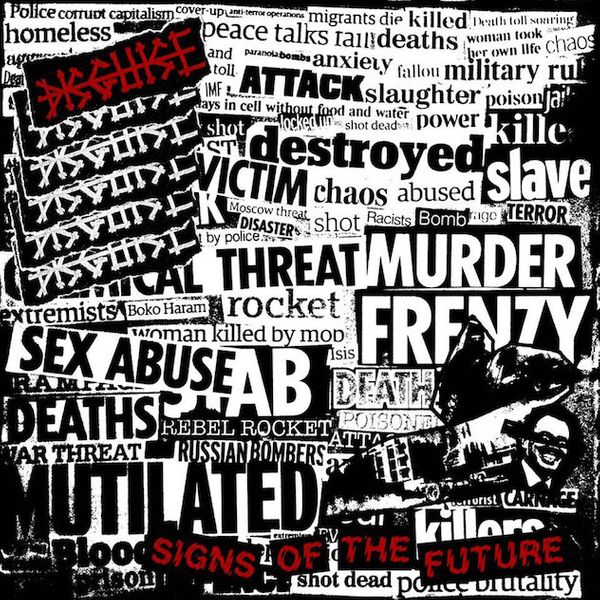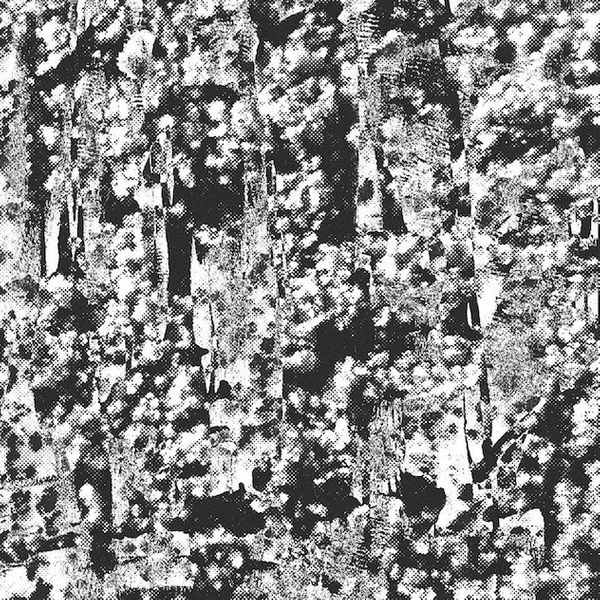Campbell Kneale: Three Worlds
 Writing about New Zealand outlier musician Campbell Kneale isn’t an easy task. For a start, the prolific noise-maker wouldn't even agree that he makes music, as such. Kneale's said before that, "music doesn’t really interest me as much as 'bending space and time' (for which music is a great tool)". And that makes unpacking Kneale's music, or his non-music, or whatever the fuck you want to call it, an equally brain-twisting endeavour.
Writing about New Zealand outlier musician Campbell Kneale isn’t an easy task. For a start, the prolific noise-maker wouldn't even agree that he makes music, as such. Kneale's said before that, "music doesn’t really interest me as much as 'bending space and time' (for which music is a great tool)". And that makes unpacking Kneale's music, or his non-music, or whatever the fuck you want to call it, an equally brain-twisting endeavour.
Admittedly, it's entirely apt that writing about Kneale is a challenge. He is inimitable. Unconventional. And while Kneale's most well-known for crafting mind-scorching drones and psychedelic/ritualistic noisescapes, he's also shaped far poppier sounds.
Kneale runs his noted Celebrate Psi Phenomenon label, and he also curates his Don’t Fuck With Magic imprint. He's recorded under a number of different monikers – including Birchville Cat Motel, Our Love Will Destroy the World, and Black Boned Angel. And Kneale's collaborated with a long line of other uncompromising noiseniks from home and abroad over the years.
Kneale's music can be cosmic, labyrinthine, fathomless, corrosive, crushing, hypnotic, magick, or meditative (or simply a mix of all). But, as writer Chris Cudby has pointed out, the diversity of Kneale's various projects is "unified by the intensity of his vision".
Kneale’s sonic explorations feel instinctual and driven by relentless and limitless creativity. But he wholly rejects the term 'artist' and thinks being labelled a 'musician' is "silly when you apply it to most of what I've recorded".
Kneale uses words like "interplanetary" or "tonal clusterfucks" to help explain his work. But he described it best as "devastating, high volume, gnosis... flaming pentagrams of sound".

Kneale’s got no time for self-appointed experts seeking to decode his oeuvre. And he detests the pretentiousness tied up with fringe music making. He also considers descriptions of his work – like 'experimental music' or 'sound art' – to be "magic-less, meaningless, crap". And I admire Kneale's spurning of conventions, his irreverence, and his refusal to make concessions.
That feeling isn't mutual though.
Kneale's said in the past that he thinks the world of music journalism is, essentially, a circle-jerking cesspit. So I'm on his shit-list too.
That’s not going to stop me writing about Kneale's music though. As soon as I heard his "flaming pentagrams of sound", I knew that strange new worlds awaited.
Those are worlds that others might well construe as unintelligible and utterly meaningless. But those are worlds where I can tunnel and hide in submerged recesses or even find renewed strength. Those are worlds where I can gain a greater sense of who I am – standing amongst giant ramparts of noise.
I've picked three of those worlds to highlight below. Although, honestly, that barely scratches the surface of Kneale's universe. Obviously, there are a lot of potential avenues I could explore while talking about Kneale's magic/music-making. But I'm not interested in dry, meticulous analysis.
I like to talk about music's tangible effects, rather than its theoretical intent. And if it's one thing that Kneale’s music has, it's plenty of fucking impact.

Birchville Cat Motel
The first time I heard Kneale's long-running Birchville Cat Motel project I felt as if reality was being torn asunder. It was an intoxicating experience. And I was an instant fan.
Kneale recently released a compilation of early Birchville Cat Motel rarities, entitled Chaos Steel Skeletons, and the 40 tracks therein are a great reminder of that electrifying rush I felt all those years ago.
I'm not sure what the release of Chaos Steel Skeletons says about Birchville Cat Motel's current status. Like other Kneale projects, it seems to exist in a liminal sphere where active, inactive, and reactive are all simultaneous possibilities.
One thing I can say for certain is that Birchville Cat Motel has found more fame offshore than at home. Although, given the limited audience for genuinely unorthodox music in NZ, it's often the case that out-there artists find larger fanbases overseas.
Birchville Cat Motel's discography is massive. But summing that discography up is nigh on impossible. Kneale once said that Birchville Cat Motel is a "high-speed collision between high-brow and low-brow music" (and that works fine). But I much prefer his "Black Flag plays Music for Airports" description.
Ultimately, it doesn't matter what Birchville Cat Motel is. Far more important is what Birchville Cat Motel does. And that brings us back to Chaos Steel Skeletons.

Chaos Steel Skeletons injects a hefty and often hallucinogenic dose of spellbinding noise into your mind's eye. Some of the tracks collected on the album are far more fleshed-out than others. But, thick or thin, hypnotic frequencies and vibrational energies alter your perceptions (or, in some cases, simply scour your brainpan).
Chaos Steel Skeletons also offers a glimpse into Birchville Cat Motel's evolution. Kneale rescued the songs from "mouldering tapes" and they do reveal his early influences and first creative explorations.
You'll hear ear-bleeding inspirations from Europe, Asia, and right here at home. All rendered into spiked noise, acid-fried stonk, and molten droning sap.
There's a lot to take in on Chaos Steel Skeletons – and I wouldn't advise ingesting it all at once – but the crude, abstract, and even scintillating sounds are guaranteed to excite; for good or for bad.
Chaos Steel Skeletons' blown-out terrain covers a lot of ground. But as much it's a raw and often nerve-grating release, Chaos Steel Skeletons is also a great introduction to Birchville Cat Motel. (Especially if the project's mammoth discography feels intimidating and you have no idea where to start.)
Chaos Steel Skeletons features gestures and techniques that Kneale later develops and demolishes to great effect. And if you can make it through the collection's brain-scrambling thickets, there's a mountain of other fascinating Birchville Cat Motel noise to explore.

Black Boned Angel
Black Boned Angel is my favourite of Kneale’s musical projects. It's also his most famed undertaking amongst fans of avant-garde metal and heavyweight drone. Working with collaborators James Kirk and Jules Desmond, Kneale released a formidable stack of (((doom/drone))) from 2003 to 2013. And while Black Boned Angel is now defunct, the band's reputation continues to grow.
Black Boned Angel's name was lifted from a track off Godflesh's Selfless album, and the trio used elements from sludge metal, doom metal, and industrial and dark ambient music to construct mammoth walls of pitch-black, primordial drone.
Kneale's said his compositions are "less about ‘music’ [and] more in line with the direct, formless, power". And that feels most apt when it comes to the maximal/minimal – and always monolithic – music of Black Boned Angel.
The band's tracks are replete with a sense of traumatic totality. And with ultra-distortion, low-frequencies, churning feedback, extreme volume, and Black Boned Angel's 10-tonne tone, things can get awfully fucking gut-wrenching.
Black Boned Angel's discography is über-heavy, and packed with spirit-crushing and atom-smashing soundscapes, and it features a lot of brute-force physicality. But it's also worth pointing out that the band's last full-length, 2013's The End, actually included much brighter passages of music.

Where to start with Black Boned Angel? Well, you could always ease yourself in with the band's well-regarded split release with like-minded droners Nadja (from 2009). But I'd recommend you just go for broke and dive into the unholy trinity of 2006's Bliss and Void Inseparable, 2008's The Endless Coming Into Life, and 2009's mind-fracturing Verdun.
If your sanity survives, you'll love the rest of Black Boned Angel's cavernous releases. The band make zero concessions for anyone's comfort. But subtle shifts of sound are frequently woven into the fabric of their mangling music.
Black Boned Angel do destructive drone very well. But, like Sunn O))), Corrupted or (early) Earth, Black Boned Angel's music highlights the rapturous bliss that comes from being utterly engulfed by sound.

Our Love Will Destroy the World
My fascination with Kneale’s music is inextricably tied to the fact it's often indescribably weird. I mean, you can attach a couple of solid(ish) subgenre tags to Black Boned Angel. But when it comes to Kneale’s Our Love Will Destroy the World (OLWDTW) project, you're essentially being asked to categorise the uncategorisable.
OLWDTW's ever-expanding discography sees Kneale thread clangour through clatter while delighting in boundless, ecstatic maelstroms. Free-form drone (kind of) frames OLWDTW's compositions. But that doesn't come close to capturing the breadth or diversity of sound within those cacophonies.
OLWDTW releases have featured sun-blasted electronics, ritual percussion, ambient tapestries, skewed noise, found-sounds, oblique space rock, psychedelic meltdowns, and outré trips into the great beyond and/or the farthest reaches of the mind.
Sometimes all those things sound like they're playing at the same time.
Sometimes it sounds like you're encountering an alien language for the very first time.
OLWDTW is often sublime. But it's also often fuck-ugly and fuck-angry. Harmony exists alongside disharmony. Intensity is balanced by introspection. And, much like Birchville Cat Motel, it's difficult to know where to start with OLWDTW.

OLWDTW's recent releases are well worth investigating. But, for a truly psyche-cracking experience, try Thousands Raised to the Sixth.
Released in 2012, Thousands Raised to the Sixth is one of OLWDTW's most expansive releases. It's a hugely impressive release in imaginative terms, and its construction sees Kneale put everything out there in a resolute fashion.
Thousands Raised to the Sixth is a deluge for the senses, and its myriad strains of layered instrumentation make it an excellent first encounter for any new OLWDTW fan. Subtle melodies and malleable frequencies are all there to be enjoyed. But so are harsher distortions and heavier passages – to sate harder appetites.
Thousands Raised to the Sixth explores a vast range of sonic spheres, and its depth and density ensure it always has something new to say. The same can be said about OLWDTW's unpredictability, which is why it's one of Kneale's most satisfying projects.
A lot of OLWDTW's releases are undeniably epic, yet they always retain an intimate nucleus. Kneale journeys far and wide, and his sonic rites are unquestionably an odyssey, but at their heart lies the promise of transcendence.
Admittedly, transcendence is a word bursting with bullshit. But there's no other way to describe how OLWDTW's releases conjure other states of being while transporting you to otherworldly destinations.
In some cases, OLWDTW's music can be overwhelming. But that's an essential part of the process. You need to be buried by the noise in order to be reborn. And you need to have your mind shattered in order to reshape your conscious elasticity.
Only then can you truly understand.
Only then can you truly reach the hinterlands.

Coda
A lot of Kneale's music has been released in limited runs on a plethora of formats. And while many respected underground labels have released his music, it hasn't always been easy to track down. My own collection of Kneale's music is scant compared to how much he's released. But, thankfully, Kneale now maintains a Bandcamp page where dozens of his releases (both new and old) are available digitally.

The majority of the quotes in this article were taken from a great interview with Kneale conducted by Chris Cudby and published on UnderTheRadar.co.nz.
All images and excerpts of artworks were taken from the following Kneale releases: Sol Airborne Pyramid, Ships Hull Phantom, Mountainteeth, Naamah, Like Tambourines before the Genius of Plague, Powers, Chaos Steel Skeletons, Limbless Soldiers Flight, Thousands Raised to the Sixth, and Bliss and Void Inseparable.



